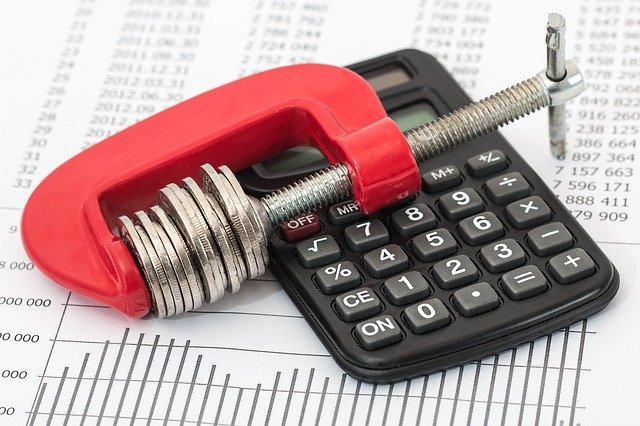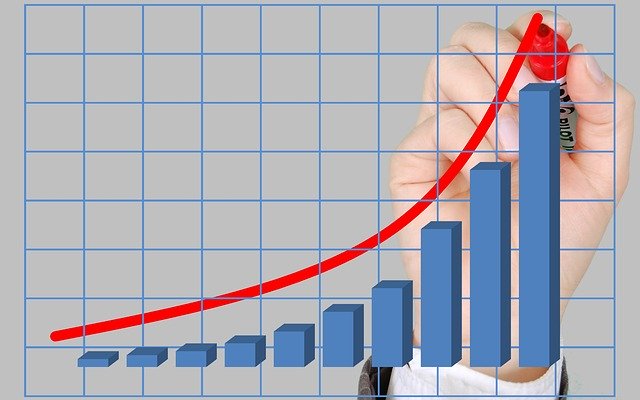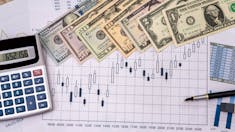Trading Forex on a Low Budget in 2026
All products and services featured are independently selected by WikiJob. When you register or purchase through links on this page, we may earn a commission.
- A list of the Top Forex Brokers on a Budget in January 2026
- Description of the Best Forex Brokers on a Budget in January 2026
- How Much Money Do You Need to Begin Forex Trading for January 2026?
empty
empty
- Tips for Forex Trading on a Budget
- Can Small Budget Forex Trading Be Profitable?
- Frequently Asked Questions
- Final Thoughts
The foreign exchange market (forex) is one of the most accessible financial markets in the world, and with millions of traders globally, it is also one of the largest.
The low entry barriers and high leverage (borrowed capital) available mean that novice traders can test the water with small deposits. And there is the potential to work towards decent returns as you become more experienced and refine your trading strategies.
Although you are unlikely to make large profits trading forex with a low budget, it is a useful way to learn the ropes and try your hand at trading without taking undue risks.
In this article, we look at the advantages and limitations of starting out with a small deposit and offer some tips on forex trading with a limited budget.
A list of the Top Forex Brokers on a Budget in January 2026
Description of the Best Forex Brokers on a Budget in January 2026
1. AvaTrade
Pros
- Trading signals and strategies
- Automated trading
- User-friendly interface
- Variety of trading pairs
- Transparency
Cons
- Reliance on signals
- Subscription cost
AvaTrade offers an ideal environment for trading Forex on a low budget, catering to traders with varying account sizes and risk appetites.
AvaTrade provides a low barrier to entry for Forex traders by offering a minimum deposit requirement that is accessible to traders with modest budgets. This allows individuals to start trading Forex with a relatively small amount of capital, making it an attractive option for those operating on a tight budget.
AvaTrade offers the ability to trade micro and mini lots, which allow traders to control smaller positions relative to standard lots. This feature is particularly beneficial for traders with limited capital, as it enables them to participate in the Forex market with reduced risk and exposure.
AvaTrade offers leverage on Forex trading, allowing traders to control larger positions with a relatively small amount of capital. While leverage can amplify both profits and losses, it provides an opportunity for traders with limited budgets to magnify their trading potential and access larger positions in the market.
AvaTrade offers competitive spreads and transparent fee structures, ensuring that traders can execute trades with minimal costs. Tight spreads help to optimize trading performance, allowing traders to maximize their returns, particularly when operating with a low budget.
AvaTrade provides a range of risk management tools to help traders mitigate potential losses when trading Forex. These tools include stop-loss orders, which allow traders to specify the maximum amount they are willing to lose on a trade, helping to protect their capital and manage risk effectively, especially when operating with a limited budget.
AvaTrade offers a wealth of educational resources, including tutorials, webinars, and market analysis, designed to help traders improve their trading skills and knowledge of the Forex market. These resources are invaluable for traders operating on a low budget, as they provide guidance and support to enhance trading performance and make informed decisions.
2. IG
Pros
- Highly regulated
- MetaTrader 4 (MT4)
- Over 10,000 instruments
- Available in the UK and US
- 24/7 customer support
Cons
- High fees
- No deposit compensation scheme for US accounts
- No copy trading
- Inactivity fees
IG is a great share trading platform for beginners thanks to its user-friendly interface and extensive educational resources.
Pros of IG include a wide range of trading instruments and markets, as well as the ability to access multiple account types and trading platforms. The platform also offers a demo account for beginners to practise trading strategies before investing real money.
However, IG isn’t the cheapest share trading platform, with relatively high trading fees and a minimum deposit requirement of £250 when paying by credit/debit card or PayPal.
In terms of additional fees, IG charges a commission fee for share trading, starting from £8 per trade. There’s also a custody fee of 0.25% per year for holdings of £250 or more.
Overall, IG is a solid choice for beginners looking for a user-friendly platform with extensive educational resources, but investors should be aware of its fees and minimum deposit requirements.

How Much Money Do You Need to Begin Forex Trading for January 2026?
You don’t actually need any money at all to begin forex trading – if you are completely new to forex and want to find out if it is for you then you can start for free using a demo account where you will trade with virtual money.
Also known as practice or simulated accounts, these are available on most forex trading platforms. They allow potential forex traders to experience live markets for themselves before investing and are an ideal way to test out strategies and make mistakes (as all traders inevitably will) without the risk of losing capital.
While demo accounts are a useful testing ground, if you are serious about trying your hand at forex trading, at some stage you will need to make the leap into investing your own money. Even then, it is possible to get started with a very small initial deposit.
For day trading in forex, there is no legal minimum amount required. The deposit you need will depend on the broker you choose to use; most will allow you to open an account with $500. Many will accept an initial deposit of just $100 and some will go even lower.
However, while it is possible to begin trading forex with a very small amount of money, if your deposit is too low you will struggle to make good use of your account while trading sensibly. Here are some things to consider:
$100 Deposit
It is generally advised not to risk more than 1% of your capital on each trade. So, if you have a capital of $100, your risk on each trade should be limited to $1, which means you will only make very small gains when betting correctly.
It’s also important to enter a stop-loss order, which automatically closes a trade at a predetermined price to limit your losses.
A simple stop-loss order on a day trade would be 10 pips (a pip is the unit of measurement used to express the movement in the exchange rate for a currency pair).
For most currency pairs, a pip is the fourth decimal point or 1/100th of a per cent.
Keeping a reasonable stop-loss order in place while trading at $1 would severely limit your ability to trade.
$500+ Deposit
Starting an account with at least $500 will give you greater flexibility in your trading while staying within sensible risk limits, and will also give you a better return on your investment.
A good starting deposit for those on a budget would be between $500 and $1,000. However, this amount will still limit you to day trading.
If you want to try swing-trading, which involves holding your position for days, or even weeks, to take advantage of longer-term movements in the market, you will need a starting investment of at least $2,500.
Remember, you should never invest more than you can afford to lose.
Tips for Forex Trading on a Budget
While trading forex on a budget is possible, it requires patience, discipline and thorough preparation.
In this section, we set out some of our key tips for getting started with a small deposit.
Step 1. Find the Right Broker
You will need to find a broker who offers accounts at the level of investment you are willing or able to make. You should also make sure that you choose a reputable broker who is part of a regulatory body.
In the UK, this would be the Financial Conduct Authority (FCA). And check your broker’s other policies and offerings, such as leverage amounts, commissions and withdrawal policies.
Step 2. Take the Time to Learn
Before you begin trading with real money, you should make sure you fully understand basic concepts of forex trading, such as risk management and analysis techniques. Read in-depth articles around the subject and, if possible, speak to people who are experienced and successful in forex trading.
Online academies such as FX Academy also offer a wealth of information and resources. Once you feel that you have a handle on forex trading, try out your approach on a demo account before risking your own capital.
And remember that you will need to keep on learning and adapting your approach as market conditions and regulations change.
Step 3. Monitor Your Gains in Percentage Terms
Viewing your successes in percentage increases rather than dollars or pounds will help to give you a clearer idea of how you’re doing relative to your investment.
For example, a gain of $50 may not feel like much, but on a $500 account, it’s 10%, which suddenly seems more significant. View your forex trading as a business, where trading performance over time is more important than daily or weekly wins and losses.
Step 4. Be Realistic With Your Profit Targets
If you’re starting with a small amount of capital it is unlikely that you will be making large profits in the near future, so don’t set yourself unattainable targets that will leave you feeling discouraged.
It is more important to focus on achieving small, consistent profits that will gradually add up as time goes on.
Step 5. Invest Small but Regularly
If you’re starting out on a budget, you should aim to invest small amounts weekly while you hone your craft and refine your strategies.
Investing $5 to $10 a week will allow you to learn the ropes, make mistakes and lose trades without putting too big a dent in your capital.
Over time, these small investments will start to add up and you can work your way up to trading larger amounts.
Step 6. Be Patient
If you only have a small amount to work with then your progress will be slow, which can become frustrating. But if you stay disciplined and put in the time and effort, you should gradually start to see results.
Step 7. Control Your Emotions
It is easy to get swept up in the excitement of trades and make rash decisions. To trade forex successfully, you need to keep a clear, level head, especially if you have a tight budget.
Learn with ASIA Forex Mentor Trading Course

Can Small Budget Forex Trading Be Profitable?
While you should not expect to make a living from trading forex on a budget, over time you can build up a profitable account if you are using proper risk management and developing successful strategies.
Of course, the profits you make will depend on your approach to trading, your understanding of the market and the risks you are prepared to take. And, as mentioned above, you will need to be patient – losses are inevitable and it generally takes traders at least six months to reach a point where they have developed some degree of consistency.
Leverage is used widely in forex and can greatly increase returns for those trading with small capital. Essentially, leverage means borrowing money, usually from your broker, to make a trade. While leverage can help forex traders to earn bigger profits than they would be using their own money, it can also magnify losses so should be used conservatively and with caution.
Yes, you can start forex trading on a low budget. Some brokers offer accounts with low minimum deposits, allowing you to start trading with as little as $50 or $100.
However, it's important to note that while it is possible to start trading with a low budget, it's important to have realistic expectations and be aware of the risks involved.
The amount of money you need to start trading forex depends on the broker you choose and the type of account you open.
Some brokers allow you to open an account with as little as $50 or $100, while others require a minimum deposit of $500 or more.
However, it's important to remember that forex trading involves risk, and you should only invest what you can afford to lose.
Some strategies for forex trading on a low budget include using leverage to increase your buying power, focusing on long-term trading instead of short-term trades and using stop-loss orders to limit your losses.
It's also important to choose a broker that offers low spreads and commissions to minimize your trading costs.
You can minimize risk when trading forex on a low budget by using risk management strategies such as setting stop-loss orders, diversifying your portfolio and using leverage responsibly.
It's also important to educate yourself on the markets and develop a trading plan that aligns with your risk tolerance and financial goals.
Some common mistakes to avoid when trading forex on a low budget include overleveraging, not using stop-loss orders, not diversifying your portfolio and not having a trading plan.
It's also important to avoid chasing losses and to stick to your trading strategy.
When choosing a forex broker on a low budget, it's important to consider factors such as regulation, trading platform, customer service and trading costs.
Look for brokers that offer low spreads and commissions, and be sure to read reviews and compare different options before making a decision.
There are many trading platforms available for low-budget forex trading, including popular options such as MetaTrader 4 and 5, cTrader and TradingView.
Some brokers also offer proprietary trading platforms that are designed for beginner traders and offer low-cost trading options.
Yes, it is possible to make a profit trading forex on a low budget. However, it's important to remember that forex trading involves risk and there are no guarantees of profits.
It's important to have realistic expectations and to develop a solid trading plan that aligns with your financial goals and risk tolerance.
The risks involved in forex trading with a low budget are the same as with any other trading activity, including the risk of losing money due to market fluctuations, leverage and other factors.
It's important to have a solid understanding of the markets and to use risk management strategies to minimize your exposure to these risks.
If you experience a losing streak while trading forex on a low budget, it's important to stay calm and avoid making impulsive trades.
Take a step back and review your trading plan, and consider adjusting your strategy if necessary.
It's also important to remember that losses are a natural part of trading and to avoid chasing losses.
Trading forex with a low budget can be beneficial as it allows individuals to gain experience in the markets without risking a large amount of capital.
This is important for new traders who are still learning the ropes of forex trading.
In addition, with a low budget, traders can also focus on risk management and develop their trading strategies, which can help them in the long run.
It also helps individuals to stay disciplined and avoid the temptation of over-leveraging their trades.
There are several ways to minimize trading costs, such as choosing a broker with low fees and commissions, using limit orders instead of market orders and avoiding over-trading.
Another way to minimize trading costs is by using leverage judiciously and understanding its risks.
Traders can also minimize their costs by avoiding unnecessary trades and taking advantage of promotions or bonuses offered by brokers.
It's important to note that while minimizing costs is important, it shouldn't be the only factor to consider when choosing a broker or making trading decisions.
There are many forex brokers available in the market, and it can be challenging to determine which one is the best.
However, some of the most well-known and respected brokers include eToro, IC Markets and Pepperstone.
These brokers have a reputation for providing excellent customer service, a user-friendly trading platform, low fees and a wide range of trading instruments.
Ultimately, the best broker for forex will depend on your specific needs and trading goals.
The best forex broker for beginners is one that offers a user-friendly trading platform, educational resources and a low minimum deposit.
Some of the best brokers for beginners include eToro, Plus500 and XM.
These brokers provide educational resources such as trading tutorials, webinars and demo accounts, allowing new traders to learn about forex trading without risking their own money.
Additionally, these brokers have a low minimum deposit, making it accessible for beginners to start trading.
To find the best forex brokers for beginners, it is important to consider factors such as regulation, trading platform, educational resources, fees and customer service.
You can start by researching online and reading reviews from other traders to get an idea of what to expect.
Additionally, you can compare brokers based on their features and offerings to determine which one is the best fit for you.
It's also important to look for a broker that offers a demo account, which allows you to practice trading without risking real money.
Yes, it is possible to trade forex with $100, but it may be challenging to find a broker that allows for such a small minimum deposit.
Some brokers have a minimum deposit of $100 or less, such as Plus500 and eToro.
However, it's important to note that trading with a small account size can limit your trading options, as you may not be able to open large positions or use certain trading strategies.
Additionally, trading with a small account size can also increase your risk of losing money.
It's important to manage your risk carefully and use proper money management techniques when trading forex.
Final Thoughts
If you are interested in forex trading but only have a small budget, you should start by learning the fundamentals of risk management and work on developing strategies using a demo account. Once you are confident, you can move onto trading on the live forex market for real.
The forex market is accessible to those on a small budget and, with patience and discipline, there is the potential to make profits as you gain experience.
However, as with all trading, there is a great deal of risk involved. Losses are inevitable, even for the most experienced forex traders. You should be certain that you are comfortable with this before investing your own money, and never trade more than you can afford to lose.
WikiJob does not provide tax, investment or financial services and advice. The information is being presented without consideration of the investment objectives, risk tolerance or financial circumstances of any specific investor and might not be suitable for all investors. Past performance is not indicative of future results. Investing involves risk including the possible loss of principal.





